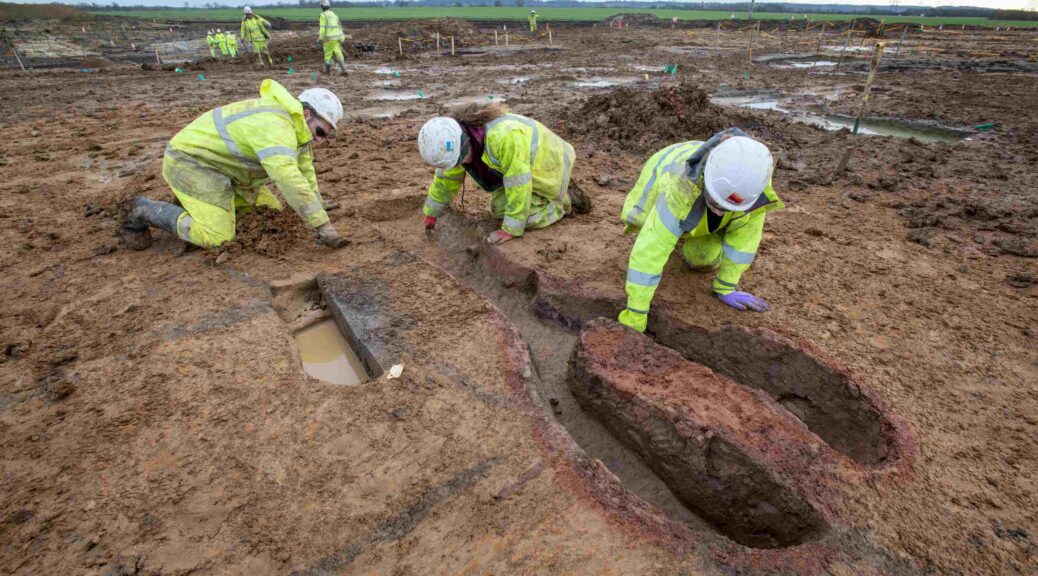Roman Malting Oven Uncovered in England

Archaeologists have identified evidence of 2,000-year-old beer production at a site of a road improvement scheme. The remains of a Roman malting oven and charred spelt grains were found during digging in Bedfordshire, as part of the proposed work on the A428 between the Black Cat roundabout and Caxton Gibbet.
Experts have analysed the grains and said they suggested people who lived there were involved in making beer.
The site, known as Field 44, was excavated from July to February.
During the dig, the team from the Museum of London Archaeology (Mola) and the Cambridge Archaeological Unit discovered the remains of a farmstead that they believed was in use from the Middle Iron Age to the late Roman period.
The Iron Age in Britain ran from about 800BC until the period of Roman rule, which ran from AD43 until about AD410.
They said archaeobotanists, who specialise in the study of past human-plant interactions, had since identified that the charred spelt grains were left to germinate before being dried in a kiln.
“As large quantities of grains are only allowed to germinate when the aim is to produce malt – the first step in the brewing process – this strongly suggests the people living at the settlement were involved in beer production,” a Mola spokesperson said.


However, they added that little evidence of the structures needed for brewing had yet been identified, so it was unclear whether the people at Field 44 were completing the process on-site.
Project science advisor Rachel Ballantyne said: “It is possible only malt was being produced here, which was then taken to be brewed elsewhere.
“This raises interesting questions about how the people living on this farm might have been interacting with neighbouring communities as part of a wider trade network.
“The germinated grains are likely to have been accidentally burnt, but this ancient mistake has benefitted our research.”
Mola said research on the discoveries at Field 44 continued.

